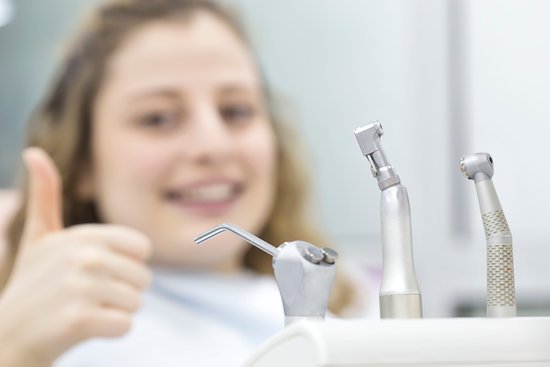 Not just children but some adults also become anxious and feel stressed before even entering the dental office due to dental fear. Sedation (calmative) dentistry makes life easy for such patients and their dentists as well.
Not just children but some adults also become anxious and feel stressed before even entering the dental office due to dental fear. Sedation (calmative) dentistry makes life easy for such patients and their dentists as well.
Some drugs can offer mild, moderate, and profound calmative effects. The dentist selects the medication/drug type depending on the level of anxiety, and the type of surgery patient is expected to undergo.
How does dental sedation work? Which are the most preferred sedation techniques?
Laughing gas (inhaled minimum sedation)
Laughing gas, combined with oxygen, is delivered in the patient’s nose using a specially designed mask. Its effect wears off quickly, and controlling the amount of sedation is easy for the dentist. It helps the patient to relax without losing consciousness.
Pill-based oral sedation
Oral sedation involves administering a pill, mostly from the Valium drug family. The dentist determines the dose size depending on the level of sedatives required for the treatment. The medicine needs to be taken at least an hour before the surgery. The patient remains awake, however, feels drowsy and dizzy during the procedure. In some cases, the person might even feel sleepy after the drug starts showing effects. A gentle shake can prove to be sufficient enough to awaken the patient.
What is IV sedation dentistry?
Even thinking about visiting a dental office triggers anxiety in some people’s mind. Studies suggest that millions of Americans face some or the other form of dental anxiety. For such individuals, IV sedation proves to be a lifesaver. It can help patients feel comfortable while undergoing dental surgeries.
Dental care experts opt for IV sedation if the situation requires the patient to remain awake but lesser aware during the treatment. This medicine is injected through a vein and offers a long period of amnesia.
General anesthesia (for profound calmative effect)
Some procedures require the patient to remain completely unconscious, and this is when dental surgeons use general anesthesia medications. The patient remains deeply asleep until the effects of the drug start wearing off.
What’s the difference between sedation and anesthesia?
With general anesthesia, the patient becomes completely unconscious, while on the other hand, sedation can help in keeping the patient awake, in lighter sleep, without experiencing any pain or anxiety. It won’t be wrong to suggest that sedation is the thin line between remaining completely awake and unconscious.
General anesthesia is considered as the best option for complicated surgeries, while sedation is recommended for minor procedures.
How safe is sedation dentistry? What are the risk factors in IV sedation dentistry?
It is completely safe when performed under controlled conditions by experienced professionals. A patient suffering from dentist phobia feels anxious even while going for routine checkups. However, with mild sedatives, he or she does not feel a thing. Sedation dentistry plays a crucial role in easing procedures like wisdom-tooth extraction, root canals, etc.
Patients suffering from heart diseases, diabetes, obstructive sleep apnea, obesity, and other medical conditions need to discuss their medical history with the expert while planning the treatment and use of anesthesia.
While under sedation, the surgeon monitors the patient’s vital stats. Doses of medication/drugs are administered as per FDA recommendations, and patient’s health as well as age factor. However, every patient may react differently to various dosages of medication. Thus, close monitoring of vital stats becomes crucial.
The patient might experience a feeling of mild nausea, shivering, excessive sweating, or headache while under anesthesia. But, the adverse effects are minor compared to benefits offered.
Who can administer sedatives?
Anesthesiologist, oral and maxillofacial surgeon, and general dentist can administer sedatives in compliance with the rules laid down by state authorities.
They also need to complete the necessary training and certification required as per American Dental Association guidelines.
In the case of children, experts recommend trained pediatric dentists to ensure the presence of anesthesia professionals while administering sedatives
Benefits of sedation dentistry
Adults and kids who have sensitive teeth, feel uncomfortable due to needles and dislike the smells, sounds while at a dental office can opt for oral sedation. It helps in managing dentist phobia and generates confidence in the patient.
Can I eat before sedation dentistry?
Your dental office would explain the procedure and set expectations while planning the treatment. They would suggest what to eat or drink on the day of treatment. Most of the dentists ask patients to avoid eating anything from at least six hours before undergoing sedation to be on the safer side.
Select a dental office with a good reputation. If you are worried due to dental anxiety and wish to know various options to cure your fear, you can always make an appointment at TruCare Dentistry.
